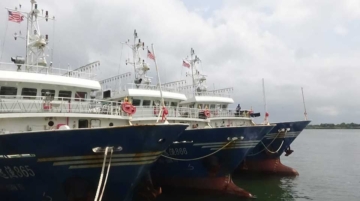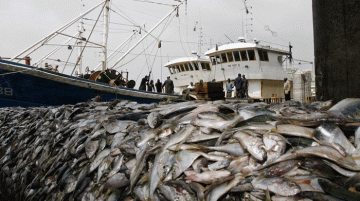
The deal between the government of Sierra Leone and Chinese entities to build an industrial fishing harbor on 100 hectares of beach and rainforest reads like a textbook example of why China remains so unpopular among many African communities, even as its relationship with African governments goes from strength to strength.
Is the land relatively pristine? Yes. Does it support an intact local fishing economy? Why, yes. Will the proposed development hurt said local community and ecosystem while only inching Sierra Leone slightly up a value chain already clogged with other Global South competitors? Of course.
None of this is new, and it follows a familiar narrative. Of course, the announcement is vague and the community has been kept out of the loop. It’s announced as a fait accompli, leaving civil society groups to fight an already done deal, rather than being involved in working out a more sustainable solution between all the stakeholders. Now we only have to wait for the Chinese embassy to call critics of the project agents of the Western media, and we’ll have a complete set.
This dynamic makes clear why African communities tend to assume that their own governments are plotting to sell national assets at fire-sale prices to ‘the Chinese.’ The lack of differentiation between different Chinese actors ends up driven as much by a lack of direct engagement from whichever Chinese entity is involved as it is by local officials’ own secrecy and complicity.
There’s very little space to question the game when you’re doing your best just to keep up.
The result is that any Chinese deal, no matter how above-board, comes in for suspicion, already pre-tainted by the massive trust gap between national governments and local communities. It’s no surprise that the ‘debt trap’ narrative has proven so durable in Africa. Even as its specifics have been debunked many times, the story fits so neatly into the continent’s lived experience that it’ll likely never die.
But the problem doesn’t end with the Chinese. Its fundamental root lies in the Global South’s global economic position, a position made clear (somewhat chillingly) by Sierra Leone’s own fisheries minister, Emma Kowa Jalloh: “I would just appeal to people: ‘be patient, we want to be developed, we want to grow, we want to be classified as an upcoming country. There must be development and somebody has to sacrifice.”
Now that China is a powerful country, it frequently pays lip service to global systemic reform. However, its own development trajectory wasn’t achieved by questioning a system that has previously colonized countries fighting each other up a development ladder ultimately constructed by and favoring their former colonial masters. Rather, China succeeded by internalizing the system’s rules and playing the game harder than anyone else, frequently at the cost of its own ecosystems and local communities.
So China doesn’t necessarily come to the table with new ideas. No Chinese entity will question the Minister’s adamant ‘there must be development.’ China’s suffering during its own development process hasn’t led to the questioning of development itself, nor to fundamentally new ideas of what profitable and sustainable development might look like. This is also true for Global South governments themselves. There’s very little space to question the game when you’re doing your best just to keep up.
Add habitual secrecy and the very real possibility of corruption on both sides, and it’s easy to see why deals between Global South governments and China are frequently so reviled on the ground. That logic isn’t hard to grasp. Much tougher is how Global South countries can get themselves out of this bind.









